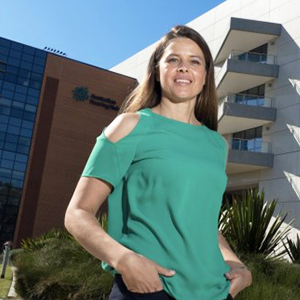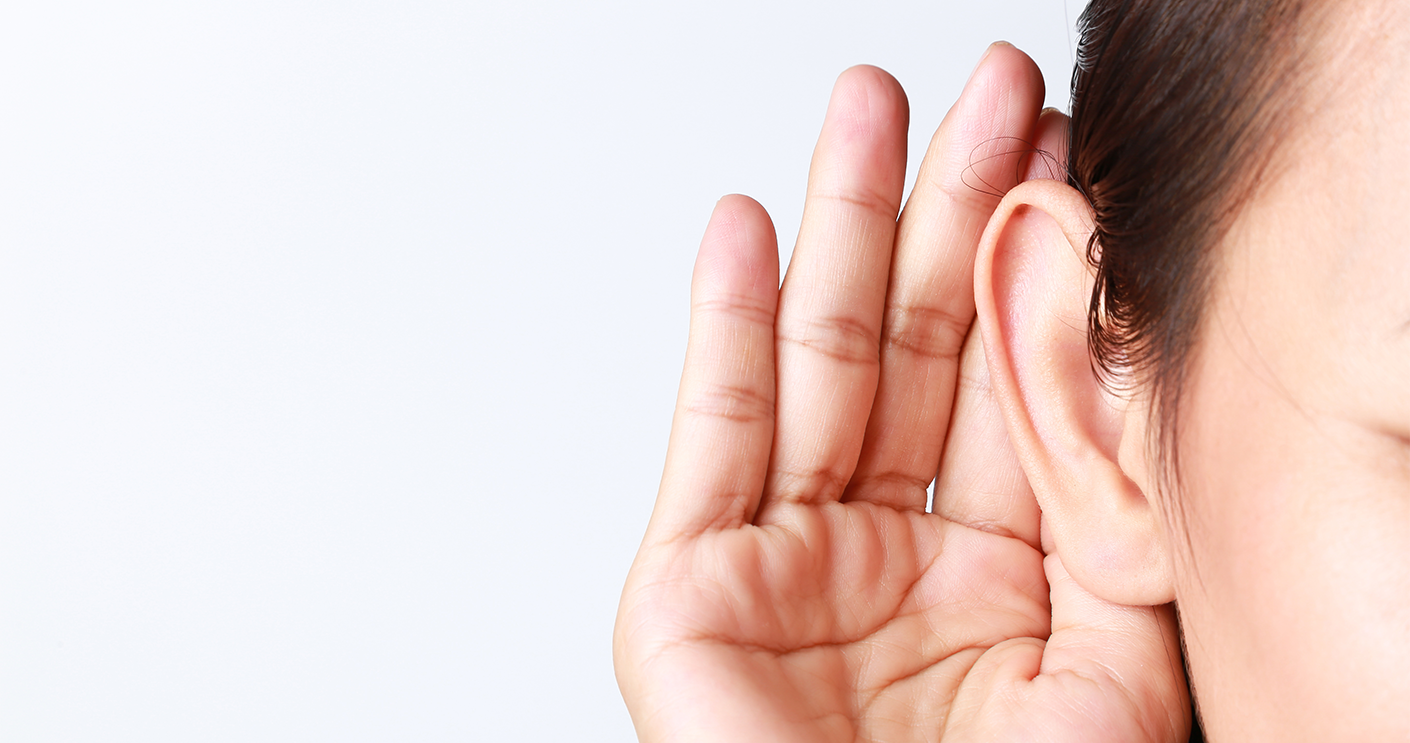With three and a half million Australians deaf or suffering from hearing loss, hearing is an important issue when evaluating the quality of our national health. So, if you are finding you’re getting progressively hard of hearing or if you’ve noticed a change in your ability to follow a conversation, it’s time to get it checked.
Advocating for better hearing-health practices and treatments, Macquarie University will mark World Hearing Day and Hearing Awareness Week from 3 to 9 March with free hearing checks available on campus.
The mission of World Hearing Day, which is held on 3 March each year – (3/3 resembling the shape of two ears) – is to raise awareness on how to prevent deafness and hearing loss and to promote ear and hearing care. This year’s theme – Check Your Hearing! – draws attention to the importance of early identification and intervention for hearing loss.
Macquarie University’s Professor Catherine McMahon has established an ongoing relationship with the World Health Organisation (WHO) program for the Prevention of Deafness and Hearing Loss. She has been invited to join the recently established World Hearing Forum, a guiding committee that aims to facilitate the development and dissemination of the World Report on Hearing.
The WHO World Report on Hearing will help put Hearing on public health agendas
 Professor McMahon is currently working with WHO to develop the report. She says it will be a call to action for governments and policy-makers globally to ensure that hearing is considered a public health issue. “Although Australia has been really active in this space, with the 2017 Parliamentary Inquiry into the Hearing Health and Wellbeing of Australia informing a Roadmap in Hearing Health, I believe the WHO report will truly help to frame the next steps for Australia,” she says.
Professor McMahon is currently working with WHO to develop the report. She says it will be a call to action for governments and policy-makers globally to ensure that hearing is considered a public health issue. “Although Australia has been really active in this space, with the 2017 Parliamentary Inquiry into the Hearing Health and Wellbeing of Australia informing a Roadmap in Hearing Health, I believe the WHO report will truly help to frame the next steps for Australia,” she says.
Hearing health checks should be performed at key life stages
“My passion is to ensure that Australia has a leading hearing health care system, globally,” says Professor McMahon. “Certainly, we have a world-class newborn hearing screening program, arguably one of the best in the world.”
Professor McMahon believes that we need to ensure that public awareness of hearing loss and the problems associated with not seeking help are well known. Messages around prevention of hearing loss from loud noise could be through a ‘slip-slop-slap’ style campaign for hearing.
“Hearing loss needs to be destigmatised. We need to ensure hearing checks are made readily available and become associated with other available health checks at key life stages. Hearing devices should be available for those who need them with the appropriate tax breaks, which would enable those who currently are not covered by existing government subsidy initiatives to be able to more readily afford them,” she says. “And, prevention of hearing loss from noise and ototoxic substances [substances that are toxic to the ear] must be prioritised and regulated nationally.”
The crisis in hearing health for Aboriginal populations
Perhaps the greatest crisis in hearing health in Australia, however, is in the Aboriginal population who have what the WHO characterises as a ‘massive public health problem’.
“Otitis media – middle ear disease – is highly prevalent in the Australian indigenous population compared with the non-indigenous population, and often occurs earlier, more frequently, and is more severe,” says Professor McMahon.
“The hearing loss which results from otitis media is associated with poorer educational outcomes, social and behavioural problems, and may contribute to the over-representation of incarcerated Aboriginal people within the criminal justice system.”
Hearing loss is not just a condition of ageing
Professor McMahon says hearing loss is strongly associated with ageing, however, it can occur at any time across the life-course: “It can occur from birth – from genetic causes, infections such as cytomegalovirus, or trauma during birth; in childhood – from bacterial or viral infections, such as meningitis or measles; a head injury, or recurrent ear infections and from exposure to loud noise or ototoxic drugs (such as aminoglycoside antibiotics).”
Young people at risk should protect their hearing
According to WHO research, exposure to loud noise (85 decibels or higher) is the number one cause of hearing loss. Sometimes this is cumulative but it can also be the result of a single event.
“Depending on the level and duration of the noise, it could be only a single event – like a bomb blast or standing near firecrackers which are going off,” says Professor McMahon.
“However, most people have exposure to lower levels of noise but for a longer time, such as going to live music events or a night club regularly or using power tools. Therefore, we need to think about the cumulative effects of loud noise on our hearing as well as the individual’s susceptibility towards this.”
Hearing loss can significantly affect an individual’s physical, social and emotional wellbeing
According to Professor McMahon, hearing loss in adults is associated with depression, anxiety and cognitive decline, social withdrawal and early retirement.
“The amount of effort that one needs to put into listening when they have a hearing loss can be exhausting, making it simpler to withdraw from social events,” she says. “The loss makes it difficult to participate in conversation, to hear in lectures or in classrooms. This mental effort also means you remember less and disadvantages those who are learning new skills or knowledge.”
Preventing unnecessary hearing loss in our community
As hearing is critical to our social connectedness, our ability to thrive in the workplace, listen and participate in boardrooms, and to listen and learn new concepts, the work of Professor McMahon for WHO, the research of her distinguished Macquarie University colleagues, and other renown experts in this field, is crucial in not only finding innovative treatments but also in ensuring a workable strategy for prevention.
“It is important that as a society, we start to really understand how important hearing is to overall health,” says Professor McMahon. “In this way, we need to confirm solutions are in place to reduce preventable hearing loss from occupational and recreational noise.
“We also need to ensure that the community has access to hearing health care, the right solutions are available to people who have different levels of hearing loss, and that those solutions are affordable,” she says. “Regular hearing checks, which I believe should be incorporated into other standard health checks, are essential to achieving better hearing health for all.”
Regular check-ups can assess personal hearing status and can help prevent long-term problems. So, if you think you have some form of hearing loss, don’t wait. Make a booking and get your hearing checked on campus.
For more information on the work of Professor Catherine McMahon and her work in developing the World Report on Hearing for WHO, contact cath.mcmahon@mq.edu.au


 Back to homepage
Back to homepage